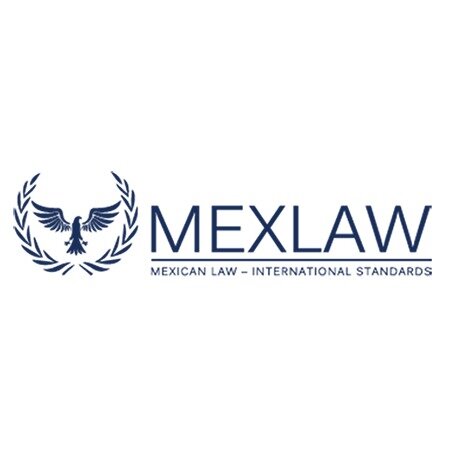Best Faith-Based Law Lawyers in Mérida
Share your needs with us, get contacted by law firms.
Free. Takes 2 min.
List of the best lawyers in Mérida, Mexico
About Faith-Based Law in Mérida, Mexico
Faith-Based Law in Mérida, Mexico, refers to the legal frameworks and principles rooted in various religious traditions that are practiced within the region. As a focal point for religious communities, Mérida is home to diverse beliefs that may seek guidance and governance through doctrines of faith. This intersects with civil law, especially concerning matters like family law, marriage, inheritance, and communal disputes. While Mexican law is secular, accommodations sometimes reflect the cultural influences of these faith-based communities, particularly in informal settings. Understanding Faith-Based Law in Mérida involves recognizing how religious tenets can influence personal and social legal practices.
Why You May Need a Lawyer
Engaging with Faith-Based Law might necessitate legal assistance in various situations, including:
- Clarifying the legal standing of religious marriages and their implications on civil law.
- Resolving inheritance disputes where religious principles conflict with civil statutes.
- Addressing conflicts within religious communities where secular intervention is limited.
- Negotiating contracts or agreements based on religious laws or traditions.
- Navigating employment law where religious practices affect workplace rights and obligations.
In each case, a specialized lawyer can provide valuable insights into how faith-based practices align or conflict with Mexican civil law.
Local Laws Overview
In Mérida, the interplay between secular and religious frameworks shapes the application of Faith-Based Law. Key aspects include:
- Marriage and Family Law: Recognizing both civil marriage and customary religious weddings can impact legal rights and obligations.
- Adjudication of Disputes: Community and religious elders often mediate conflicts, though their decisions might lack official legal standing.
- Education and Religious Instruction: Laws permit religious education within certain guidelines, balancing religious freedom and secular education mandates.
- Non-Profit Religious Organizations: These entities enjoy specific legal statuses for religious activities, requiring adherence to both religious doctrine and civil law.
Understanding these legal aspects helps individuals navigate both their religious practices and obligations under Mexican law.
Frequently Asked Questions
What is the role of Faith-Based Law in civil legal matters?
Faith-Based Law often guides personal choices and practices, but civil legal matters in México are governed by secular laws. However, religious tenets can play a role in community dispute resolutions and personal affairs like marriage or inheritance.
Are religious marriages legally recognized in Mérida?
Religious marriages are culturally significant but must be registered with civil authorities to be legally recognized under Mexican law, impacting legal rights and obligations.
How do faith-based arbitration processes work?
Many religious communities prefer arbitration by religious leaders. While not legally binding like civil court decisions, outcomes are respected within the community but may require civil legal intervention for enforcement.
What should I do if there's a conflict between religious and civil laws?
Consultation with a lawyer experienced in both faith-based and civil law is crucial to resolving such conflicts, ensuring both legal compliance and religious adherence.
How are inheritance decisions impacted by Faith-Based Law?
Religious principles might guide inheritance within communities, but Mexican civil law prevails. Disputes often require balancing both legal frameworks.
Can faith-based organizational leaders offer legal advice?
While leaders can provide guidance based on religious doctrine, legal advice should come from licensed lawyers knowledgeable about Mexican law.
Is religious education formally recognized by the state?
Yes, but within frameworks ensuring that it complements secular education mandates and meets government standards for educational curricula.
What is the legal status of religious charitable activities?
They are permitted and often tax-exempt but must adhere to specific regulations governing non-profit activities within Mexico.
How does one register a faith-based non-profit organization?
Registration requires compliance with both religious guidelines and civil regulations regarding non-profit entities in Mexico, often requiring legal counsel.
Does Faith-Based Law affect business contracts?
While civil law governs contracts, businesses may incorporate religious tenets in mutual agreements, necessitating careful legal drafting to uphold validity in both realms.
Additional Resources
For those seeking more information or legal assistance in Faith-Based Law, the following resources may be helpful:
- Local Bar Associations: Can provide referrals to experienced lawyers in Faith-Based and civil law.
- Religious Councils or Organizations: Often have advisory roles and resources for legal issues within specific faith communities.
- Government Offices: Such as the local civil registry, offer guidance on the legal recognition of marriages and other personal matters.
Next Steps
If you require legal assistance in Faith-Based Law, consider the following steps:
- Identify the specific issue and determine whether it involves faith-based practices, civil law, or both.
- Consult with a lawyer specialized in Faith-Based Law and familiar with the nuances of Mexican civil law.
- Gather necessary documents and information related to your legal matter, including any religious or community agreements.
- Reach out to local religious leaders or councils for initial guidance, but rely on professional legal advice for civil law matters.
Taking these steps will help ensure that you receive comprehensive guidance and protect your rights within both religious and civil frameworks.
Lawzana helps you find the best lawyers and law firms in Mérida through a curated and pre-screened list of qualified legal professionals. Our platform offers rankings and detailed profiles of attorneys and law firms, allowing you to compare based on practice areas, including Faith-Based Law, experience, and client feedback.
Each profile includes a description of the firm's areas of practice, client reviews, team members and partners, year of establishment, spoken languages, office locations, contact information, social media presence, and any published articles or resources. Most firms on our platform speak English and are experienced in both local and international legal matters.
Get a quote from top-rated law firms in Mérida, Mexico — quickly, securely, and without unnecessary hassle.
Disclaimer:
The information provided on this page is for general informational purposes only and does not constitute legal advice. While we strive to ensure the accuracy and relevance of the content, legal information may change over time, and interpretations of the law can vary. You should always consult with a qualified legal professional for advice specific to your situation.
We disclaim all liability for actions taken or not taken based on the content of this page. If you believe any information is incorrect or outdated, please contact us, and we will review and update it where appropriate.












